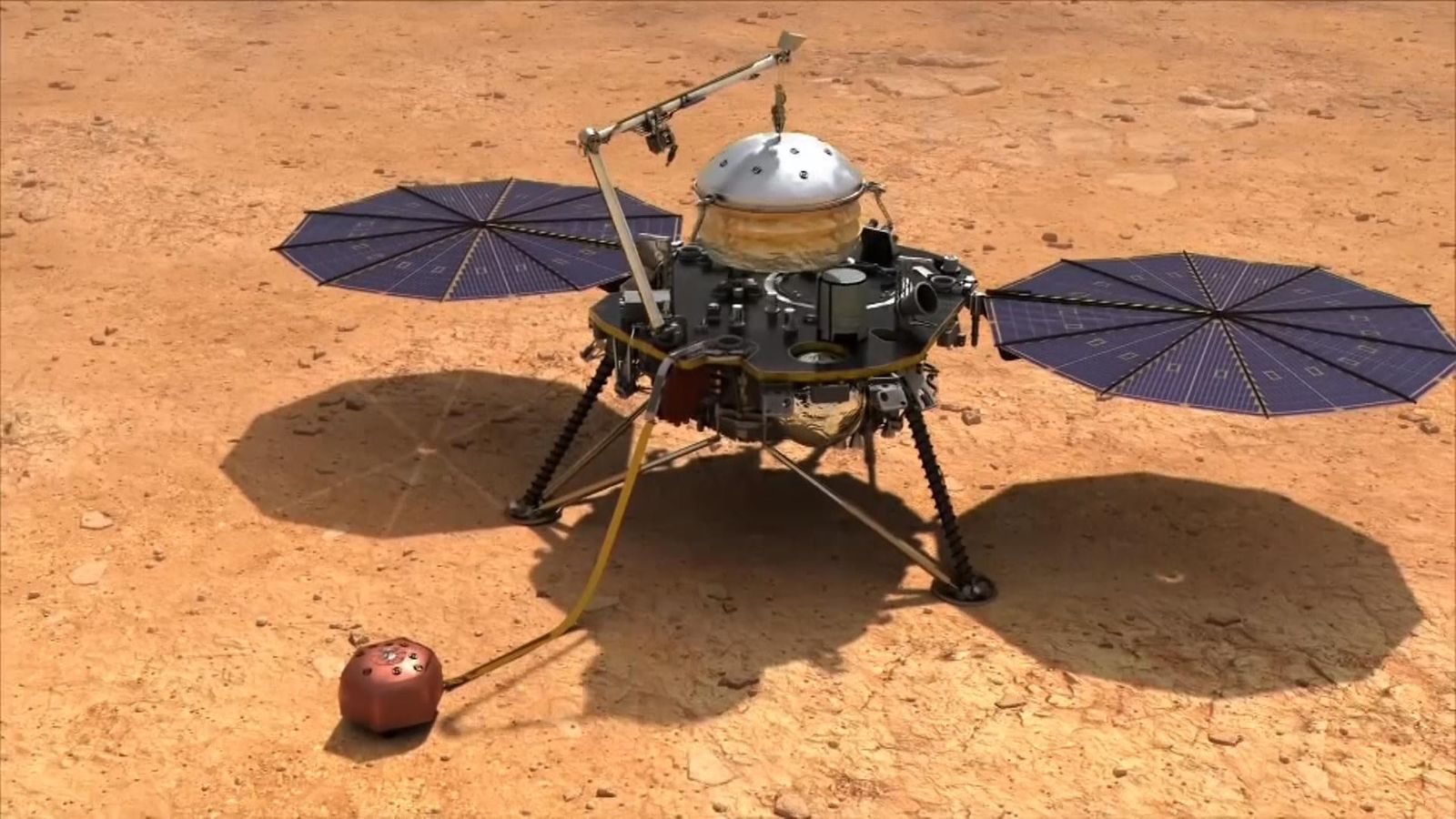NASA is preparing to say farewell to the spacecraft responsible for providing some of our closest looks at the surface of Mars.
More than 10 years after it was first announced, the InSight lander will fall silent in the next few weeks.
The US space agency says that because of the sheer amount of windblown dust now settled on it solar panels, its power generation capability is now on its last legs.
It has been stationed on Mars since 2018, when the little craft endured “seven minutes of terror” to descend to the surface of the mysterious (though, thanks to InSight, now slightly less so) red planet.
Sky News takes a look back at a few of its best moments – and how its four-year mission will wind down.
The first selfie on Mars
A few years ago, Google used data on people’s photo-taking habits to estimate that almost 100 million selfies were snapped every single day.
But only one’s been captured on Mars.
After its successful 300 million-mile journey, the InSight rover used a camera attached to its robotic arm to beam a photo all the way back to Earth from an area known as Elysium Planitia.
It marked NASA’s eighth successful Mars landing, withstanding temperatures of up to 1,500C, and prompted wild celebrations among the ground team.
Sounds like a ‘Marsquake’
InSight’s quake monitor recorded a faint rumbling sound some five months after touching down on Mars.
NASA’s scientists concluded that it came from within the planet, dubbing it a “Marsquake”.
It was so faint that it would have barely been registered had it happened on Earth, and was caused by the planet’s process of cooling and contraction (Mars doesn’t have any tectonic plates).
The recording kicked off a new research field of “Martian seismology”, NASA said, which could help find out more about how rocky planets – including the Earth – were formed.
Red planet windy season
Further tremors were detected in April 2021, but more uncertainty surrounded these.
Believed to have originated in a location called Cerberus Fossae, they were thought to have been caused by an unexplained and sudden release of energy from the planet’s interior.
It had been some time since previous tremors were recorded, leading NASA to conclude that tremors were often shrouded by seasons of particularly strong Martian winds.
Winds on Mars can peak at north of 70 miles per hour, creating enough noise to completely hide some tremors.
Meteoroid leaves impact crater
Last Christmas Eve, InSight felt the ground shake again – but this time from the impact of a meteoroid.
NASA only found out it was a meteoroid rather than another tremor last month, as cameras placed on board the agency’s Mars Reconnaissance Orbiter spotted a sizeable crater on the planet.
It was believed to be one of the largest craters ever witnessed forming anywhere in the solar system, and InSight proved key to the “unprecedented” discovery.
“It’s an exciting moment in geologic history – and we got to witness it,” said Ingrid Daubar, head of the InSight mission’s impact science working group.
How the InSight mission will wind down
One of the most important things to do is make sure all the data InSight has collected is saved.
Its seismology data, for example, will be stored with other seismic information from the Apollo moon missions for continued study that may continue to aid future discoveries.
InSight will still collect data for now – but to preserve power, much of its equipment (besides the most sensitive seismometer sensors) has been switched off.
The mission will be declared over when InSight misses two consecutive communication sessions with the NASA spacecraft orbiting Mars, and there will be no heroic rescue mission to re-establish contact.
Farewell, little InSight, you’re at the mercy of Mars now.










